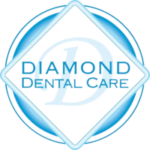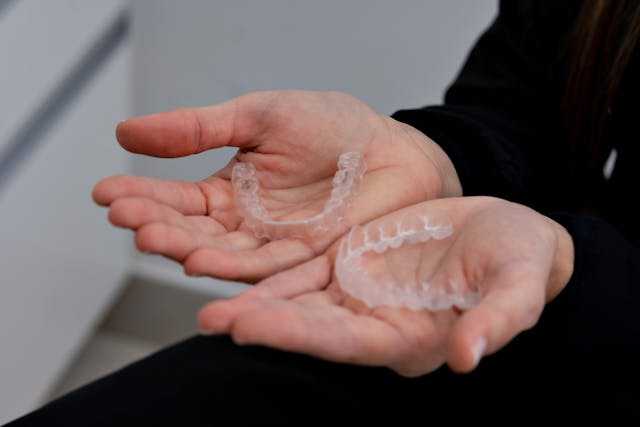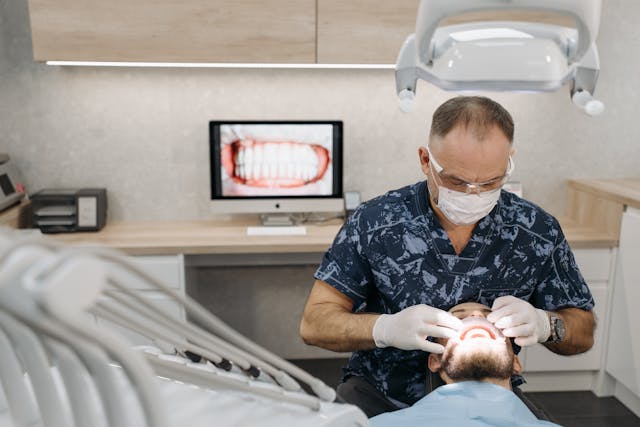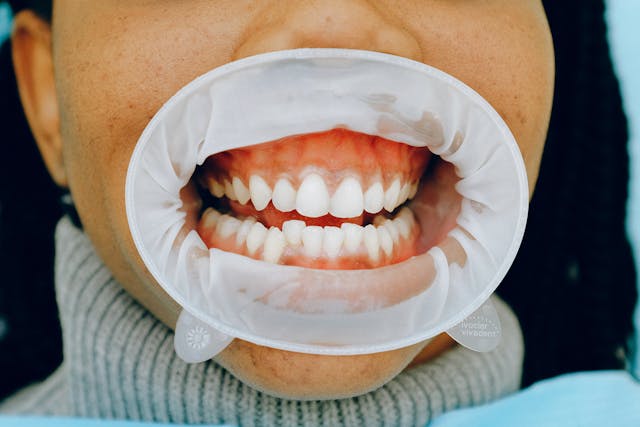Introduction
Oral health is more than just having a bright smile and fresh breath. It plays a crucial role in your overall wellness. Did you know that maintaining good oral hygiene can impact your heart health, diabetes management, and even cognitive function? This connection between your mouth and your body underscores the importance of taking care of your teeth and gums.
At Diamond Dental Care, we can examine you in our cosmetic dentistry office and discuss what you don’t like about your smile. If you have gaps between your teeth or they are crooked, stained, or misshapen, we can fix them in our dental office. There are several ways we can address most aesthetic issues, so we will conduct an examination, take x-rays, discuss the timeframe we are working with, and then present you and your parents with a variety of options to choose from.
Since some have set time constraints, it is best to schedule your appointment with our office as soon as possible. You can do so by calling (909) 860-7579. You can also follow us on Facebook or provide your valuable feedback at Yelp. Thanks.
Understanding Oral Health
Definition and Components of Oral Health
Oral health involves the well-being of your teeth, gums, and the entire oral-facial system that allows us to smile, speak, and chew. Common issues like cavities, gum disease, and bad breath might seem isolated to the mouth, but they can have far-reaching effects on your overall health.
Common Oral Health Issues
Common oral health issues include tooth decay, gum disease, and oral cancer. These conditions can cause pain, discomfort, and even tooth loss if not addressed properly. Moreover, the bacteria that cause these problems can enter the bloodstream, leading to more serious health issues.
Oral Health and Heart Health
Link Between Gum Disease and Heart Disease
Studies have shown a significant link between gum disease and heart disease. The inflammation and bacteria associated with gum disease can lead to the narrowing of arteries, increasing the risk of heart attacks and strokes. It’s a stark reminder that what’s happening in your mouth can affect your heart.
How Oral Health Affects Blood Vessels
Oral bacteria can cause inflammation in the blood vessels, leading to atherosclerosis, a condition where the arteries harden and narrow. This reduces blood flow to the heart and other vital organs, raising the risk of cardiovascular problems.
Preventive Measures
Preventing gum disease involves regular brushing, flossing, and dental check-ups. It’s essential to remove plaque, the sticky film of bacteria, to keep your gums healthy and reduce the risk of heart disease.
Oral Health and Diabetes Management
Bidirectional Relationship Between Diabetes and Oral Health
Diabetes and oral health have a bidirectional relationship. Poor oral health can make diabetes management more challenging, while diabetes can increase the risk of gum disease. High blood sugar levels provide an ideal environment for bacteria to thrive, leading to infections in the gums and bones that hold your teeth in place.
Impact of Gum Disease on Blood Sugar Levels
Gum disease can cause blood sugar levels to rise, making diabetes harder to control. Inflammation from gum disease affects insulin sensitivity, which is crucial for maintaining stable blood sugar levels.
Oral Health Tips for Diabetics
Diabetics should pay extra attention to their oral hygiene. Regular brushing and flossing, combined with professional cleanings, can help keep gum disease at bay. Monitoring blood sugar levels and maintaining a balanced diet are also essential.
Oral Health and Respiratory Health
Connection Between Oral Bacteria and Respiratory Infections
The bacteria in your mouth can be inhaled into the lungs, causing respiratory infections such as pneumonia. This is particularly concerning for individuals with weakened immune systems, the elderly, and those with chronic respiratory conditions.
Preventing Respiratory Issues Through Oral Care
Good oral hygiene reduces the number of bacteria in the mouth, thereby decreasing the risk of respiratory infections. Regular brushing, flossing, and dental visits are key preventive measures.
Oral Health and Pregnancy
Effects of Oral Health on Pregnancy Outcomes
Poor oral health during pregnancy has been linked to premature births and low birth weight. The inflammation from gum disease can increase the levels of certain chemicals in the body that induce labor.
Guidelines for Pregnant Women
Pregnant women should maintain excellent oral hygiene and visit their dentist regularly. It’s also important to eat a balanced diet and avoid sugary snacks that can contribute to tooth decay.
Oral Health and Cognitive Function
Research on Oral Health and Dementia
Emerging research suggests a connection between oral health and cognitive decline. Chronic gum disease has been associated with an increased risk of developing dementia. The bacteria from gum disease may enter the brain through nerve channels or the bloodstream, potentially leading to inflammation and brain damage.
Maintaining Cognitive Health Through Oral Hygiene
Keeping your gums healthy can potentially lower the risk of cognitive issues. Regular dental care, along with a healthy lifestyle, supports overall brain health.
Diet and Oral Health
Role of Nutrition in Oral Health
What you eat affects your oral health significantly. A diet rich in vitamins and minerals promotes healthy teeth and gums. Calcium, vitamin D, and phosphorus are essential for strong teeth, while vitamin C is crucial for gum health.
Foods That Promote Healthy Teeth and Gums
Foods like dairy products, leafy greens, nuts, and fruits are excellent for your teeth. These foods provide the nutrients needed to keep your teeth strong and your gums healthy.
Daily Oral Hygiene Practices
Brushing Techniques
Brushing your teeth at least twice a day with fluoride toothpaste is fundamental. Use a soft-bristled toothbrush and replace it every three to four months. Brush for at least two minutes, ensuring you clean all surfaces of your teeth.
Importance of Flossing
Flossing removes food particles and plaque from between your teeth where a toothbrush can’t reach. It’s crucial for preventing gum disease and cavities.
Use of Mouthwash
Mouthwash can help reduce plaque, prevent gingivitis, and freshen your breath. Look for mouthwashes with antibacterial properties for the best results.

Regular Dental Check-ups
Frequency and Importance
Regular dental check-ups, typically every six months, are vital for maintaining oral health. These visits allow your dentist to detect and treat issues early before they become more severe.
What to Expect During a Check-up
A typical dental check-up includes a thorough cleaning, an examination of your teeth and gums, and sometimes X-rays to detect issues not visible to the naked eye.
Impact of Lifestyle Choices
Smoking and Oral Health
Smoking significantly increases the risk of gum disease, tooth loss, and oral cancer. It reduces blood flow to the gums, impairing healing and making it harder to fight infections.
Alcohol Consumption
Excessive alcohol consumption can lead to dry mouth, which increases the risk of tooth decay and gum disease. Alcohol is also linked to oral cancer, so moderation is key.
Innovations in Dental Care
Latest Advances in Dental Treatments
Advancements in dental technology have made treatments more effective and less painful. Innovations such as laser dentistry, digital X-rays, and dental implants offer better outcomes for patients.
Importance of Staying Updated with Dental Care Technology
Staying informed about the latest dental care technologies ensures you receive the best possible treatment. Consult with your dentist about new methods and tools that can enhance your oral health.
Diamond Dental Care, Diamond Bar, California
Overview of Diamond Dental Care
Located in Diamond Bar, California, Diamond Dental Care offers comprehensive dental services with a focus on patient comfort and advanced technology. Their team of experienced professionals is dedicated to providing top-notch dental care.
Services Offered
Diamond Dental Care provides a range of services including preventive care, emergency dental services, cosmetic dentistry, orthodontics, and restorative treatments. They use the latest technology to ensure effective and efficient care.
Patient Testimonials
Patients at Diamond Dental Care often praise the friendly staff, state-of-the-art facilities, and exceptional care they receive. Many highlight the personalized treatment plans and the comfortable environment as key reasons for their satisfaction.
Conclusion
Maintaining good oral health is essential for your overall well-being. From heart health to cognitive function, your oral hygiene practices have far-reaching impacts on your body. By understanding the connection between your mouth and your overall health, you can take proactive steps to ensure a healthier life.
FAQs
How often should I visit the dentist?
It’s recommended to visit the dentist every six months for regular check-ups and cleanings.
Can poor oral health really affect my heart?
Yes, poor oral health, particularly gum disease, has been linked to an increased risk of heart disease.
What are the best foods for healthy teeth?
Foods rich in calcium, vitamin D, and phosphorus, like dairy products, leafy greens, and nuts, are excellent for healthy teeth.
How can I improve my oral hygiene routine?
Brushing twice a day, flossing daily, using mouthwash, and visiting your dentist regularly are key practices for a good oral hygiene routine.
Why is oral health important during pregnancy?
Good oral health during pregnancy can help prevent premature births and low birth weight, ensuring a healthier pregnancy outcome.



